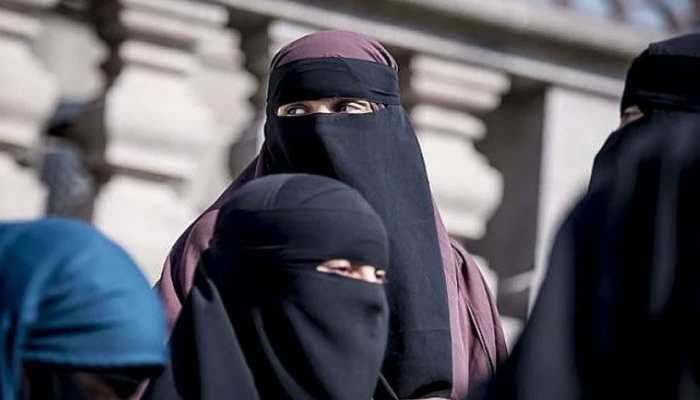The decision to ban burqas and madrasas is the latest step affecting Sri Lankan minority Muslims.

The wearing of burqas was temporarily banned in Sri Lanka in 2019, soon after the Easter Sunday bomb attacks on churches and hotels.
A Pakistani diplomat and a UN expert have expressed concern over Sri Lanka’s proposed move to ban the wearing of burqa.
Sri Lanka announced a plan to ban the wearing of burqas – garments worn by some Muslim women that cover the body and face – and also said that it has been among the 1,000 known as madrassas, citing national security Will close more Islamic schools.
Pakistan’s Ambassador to Sri Lanka Saad Khattak tweeted on Monday that the ban would “only serve to hurt the sentiments of ordinary Sri Lankan Muslims and Muslims around the world.”
On the UN’s freedom of religion or belief, Ahmad Shaheed specifically tweeted, “Burqa Bain is incompatible with the guarantee of the difference law of the right to disclose one’s religion or freedom of belief and expression.”
On Saturday, Sri Lanka’s Minister of Public Safety, Sarath Veerasekara, called the burqa a sign of religious extremism and said it had a direct impact on national security. Verasekara on Friday signed a paper demanding cabinet approval to ban the burqa.
The wearing of burqa in Sri Lanka was temporarily banned in 2019, as more than 260 people died in the Indian Ocean island nation soon after the Easter Sunday attack on churches and hotels. Two local Muslim groups who pledged allegiance to the Islamic State group have been blamed for the attacks in six places – two Roman Catholic churches, a Protestant church and three top hotels.
The decision to ban burqas and madrasas is the latest step affecting Sri Lankan minority Muslims.
Sri Lanka also plans to ban more than 1,000 madrasas, saying they are not registered with the authorities and do not follow the national education policy.
About 9% of the 22 million people are in Muslim Sri Lanka, where Buddhists make up more than 70% of the population. Ethnic minority Tamils, who are predominantly Hindu, comprise about 15% of the population.

